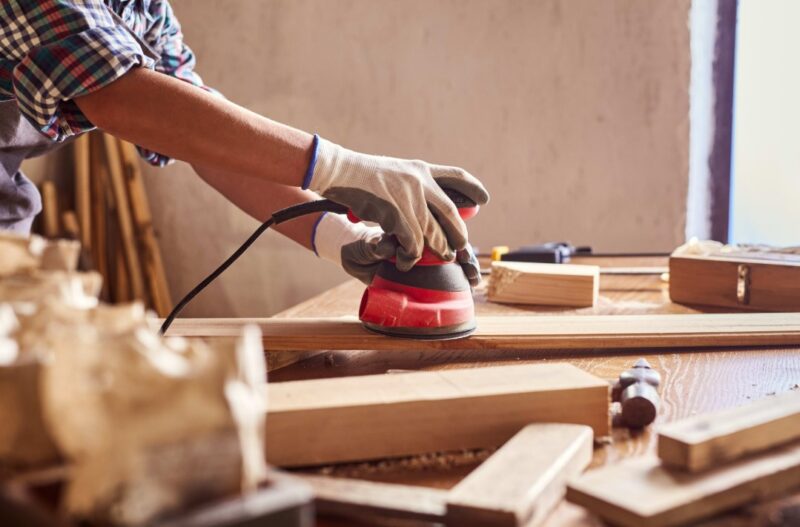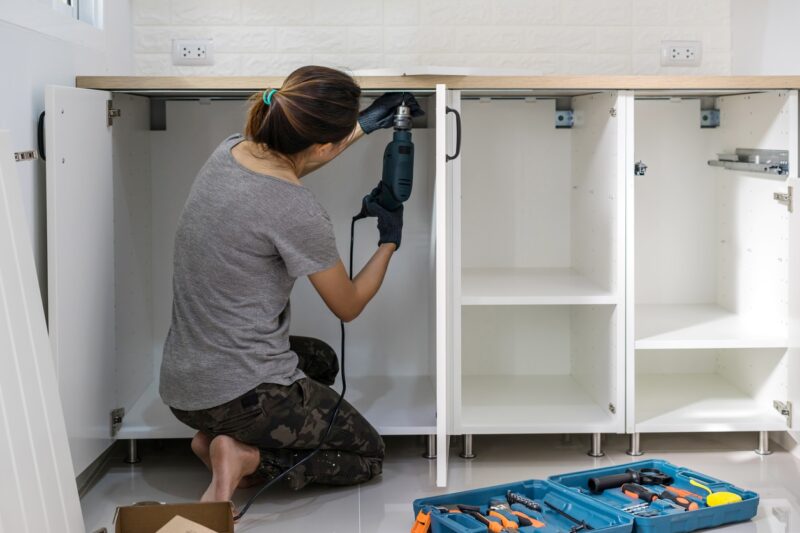Half-finished projects scattered around the house are the hallmark of well-intentioned DIYers everywhere. That bathroom renovation that’s been “almost done” for six months. The living room shelves that exist only as measurements scribbled on a piece of paper. The garage organization system that never made it past buying the bins.
Most home projects fail not because they’re too difficult, but because people approach them wrong. Without the right planning, tools, and mindset, simple weekend projects turn into months-long ordeals that test marriages and drain bank accounts. But it doesn’t have to be this way.
Successful DIY projects happen when you work smarter, not harder. The difference between projects that get finished and projects that languish comes down to preparation, realistic expectations, and having the right equipment ready when you need it.
Planning That Actually Works
The biggest mistake weekend DIYers make is diving into projects without proper planning. Enthusiasm is great, but it won’t help when you’re standing in the hardware store at 4 PM on Sunday, realizing you need a part that won’t arrive until Wednesday.
Start every project with a complete materials list. This means more than just writing down “wood and screws.” Measure twice, calculate exactly what you need, then add 10% for mistakes and miscalculations. Include everything down to sandpaper, primer, and cleaning supplies.

Break larger projects into distinct phases that can be completed in single sessions. Installing new kitchen cabinet hardware shouldn’t be one giant task, it’s measuring and marking all the holes, drilling all the holes, and installing all the hardware. Each phase has a clear beginning and end, which makes progress feel real instead of endless.
Schedule projects during times when you can actually focus. Friday evening after a long work week isn’t the time to start something that requires precision and patience. Saturday morning with coffee and good lighting is much more likely to produce quality results.
Tools That Make the Difference
The right tools transform frustrating struggles into straightforward tasks. This doesn’t mean buying the most expensive equipment, but it does mean having tools that work reliably and produce consistent results.
A quality power drill becomes essential once you start doing serious home improvement work. Modern cordless models provide enough power for most home projects while eliminating the hassle of dragging extension cords around. Look for models with adjustable torque settings and good battery life—these features prevent stripped screws and mid-project delays that kill momentum.
Hand tools matter just as much as power tools. Sharp chisels, accurate measuring tools, and properly maintained saws make every cut and joint better. Dull tools require more force, produce poor results, and increase injury risk. A few high-quality hand tools beat a garage full of cheap ones that don’t work properly.
Organization systems keep projects moving forward. Tool belts, magnetic strips, and parts organizers prevent the constant searching that wastes time and breaks concentration. When everything has a place and stays in that place, you spend time building instead of hunting.

Managing Time and Energy
Weekend projects fail when people underestimate how long tasks actually take. That “quick” bathroom update becomes an all-day affair when you discover the old fixtures won’t come off easily and the new ones don’t quite fit the existing plumbing.
Allow twice as much time as you think projects will need. This isn’t pessimism, it’s reality. Unexpected problems always emerge, trips to the hardware store take longer than planned, and quality work takes time. Rushing leads to mistakes that require redoing work.
Work when your energy is highest. Most people are sharpest in the morning, which makes it the best time for precise work that requires concentration. Save repetitive tasks and cleanup for later in the day when mental energy naturally declines.
Know when to stop. Fatigue leads to mistakes, and mistakes in DIY projects often mean starting over. It’s better to end a session with good progress than to push forward and create problems that will take hours to fix.
Problem-Solving Mindset
Every DIY project involves solving problems. The stud isn’t where it should be. The old paint won’t come off cleanly. The new fixture is slightly different from the old one. Successful DIYers expect these challenges and approach them methodically.
Research solutions before problems arise. YouTube, manufacturer websites, and DIY forums contain answers to almost every common problem. Spending 20 minutes researching proper technique beats spending two hours fixing mistakes.

Have backup plans for critical issues. If the main approach doesn’t work, what’s plan B? This prevents projects from stalling completely when the first method fails. Sometimes the backup plan turns out to be better than the original approach.
Accept that some problems require professional help. Electrical work beyond basic switch replacement, major plumbing modifications, and structural changes often need permits and expertise. Knowing your limits prevents expensive mistakes and dangerous situations.
Long-Term Success
The goal isn’t just to complete individual projects, but to develop DIY skills and confidence that make future projects easier and more enjoyable. This happens gradually through consistent practice and learning from both successes and failures.
Keep detailed records of what works and what doesn’t. Note which techniques produced good results, which tools were helpful, and which approaches caused problems. This knowledge makes future projects smoother and more predictable.
Invest in your workspace. A well-organized workshop or project area makes everything easier. Good lighting, adequate power outlets, and proper storage systems pay dividends on every project you tackle.
Build relationships with knowledgeable suppliers. Finding hardware store employees who really know their stuff, contractors who give honest advice, and online communities focused on quality work creates a support network for challenging projects.
Weekend DIY work can be genuinely satisfying and financially rewarding when approached thoughtfully. The key is treating it as a skill to develop rather than just a way to save money. With proper planning, appropriate tools, and realistic expectations, those half-finished projects can become completed improvements that make your home more functional and beautiful.








